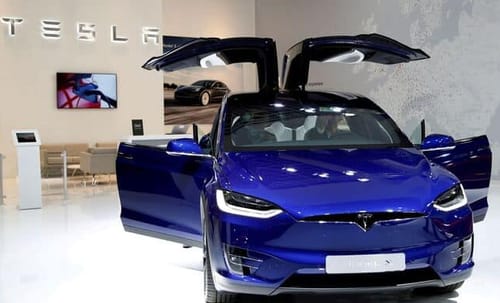 |
| Decoding Tesla's Driving Data Storage System |
A Dutch government laboratory says it has decoded the hermetically protected travel data storage system for electric car maker Tesla and revealed a lot of information that could be used to investigate major accidents.
A group of Dutch researchers have decrypted Tesla's data storage system and provided access to a set of information that may be useful for fault studies.
As we all know, company cars store accident data. However, the Dutch Evidence Institute (NFI) said it had found far more data than investigators had previously found.
The NFI said the decrypted data showed that the Tesla car stored information about the operation of the driver assistance system (called autopilot).
The vehicle also records the speed, throttle position, steering wheel angle, and brake application, and depending on the vehicle's use, this data can be stored for more than a year.
"This data provides road accident investigators and analysts with a wealth of information that can aid in criminal investigations of fatal road accidents or injuries," NFI Digital Investigator Frances Hogendyk said in a statement.
The Dutch lab said that instead of requesting data from Tesla, it was reverse engineering the data protocol. In the process, the software was disassembled to extract information about the company's cars for objective investigation.
The NFI has investigated a collision between a Tesla driver on autopilot and a car that suddenly broke in front.
Tesla's driving data storage system has been hacked
The investigation revealed that the driver responded to the warning to restore control of the vehicle as scheduled. However, the collision occurred because the car was following another car in heavy traffic.
According to NFI, the company encrypts driving data to ensure its technology is not affected by other manufacturers and to protect driver privacy. In the event of an accident, car owners can request their data, including camera footage.
Earlier this year, Tesla announced that it had set up a website in China to store car data locally. Automakers are increasingly being monitored for how they handle information collected by cameras and sensors in cars.
NFI found that the company met the data requirements of the Dutch authorities. But he missed a lot of potentially useful data.
Thanks to decryption, NFI is now learning more about the type and duration of data that is stored by car manufacturers. This enables more detailed data requests.
The lab said the company can access the data remotely. This data is regularly downloaded from the vehicle and used by the Company to improve products or correct malfunctions.
The lab said it had received data from Model S, Model Y, Model X and Model 3. These results were shared at a meeting of the European Association for Accident Research for other accident analysts to use.
